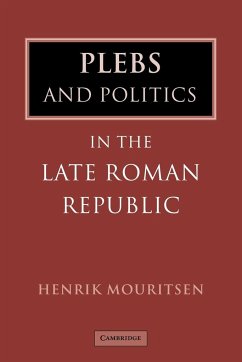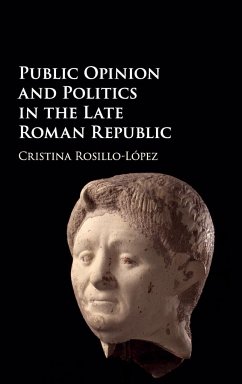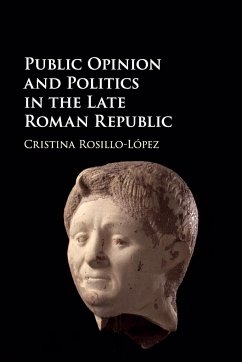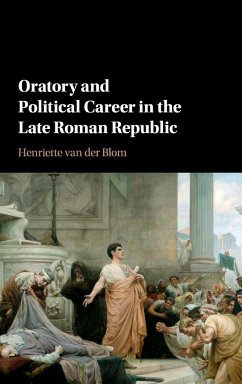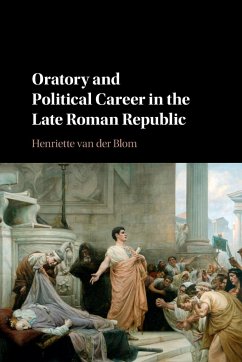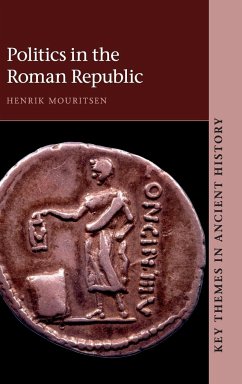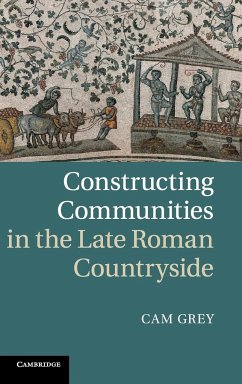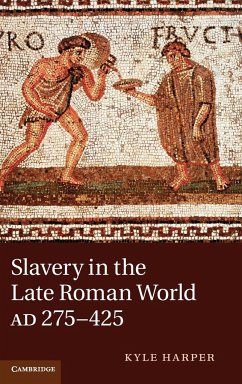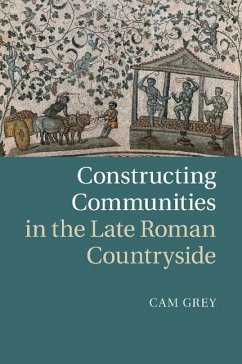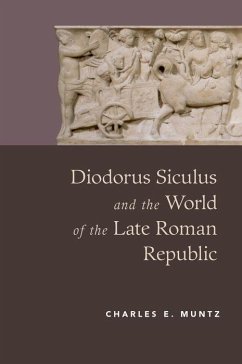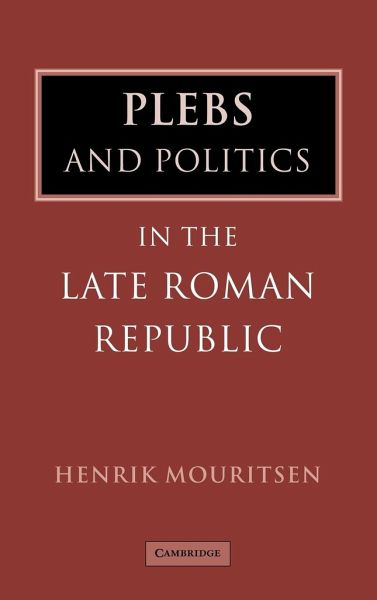
Plebs and Politics in the Late Roman Republic
Versandkostenfrei!
Versandfertig in 1-2 Wochen
68,99 €
inkl. MwSt.
Weitere Ausgaben:

PAYBACK Punkte
34 °P sammeln!
Plebs and Politics in the Late Roman Republic analyses the political role of the masses in a profoundly aristocratic society. Constitutionally the populus Romanus wielded almost unlimited powers, controlling legislation and the election of officials, a fact which has inspired 'democratic' readings of the Roman republic. In this book a distinction is drawn between the formal powers of the Roman people and the practical realisation of these powers. The question is approached from a quantitative as well as a qualitative perspective, asking how large these crowds were, and how their size affected ...
Plebs and Politics in the Late Roman Republic analyses the political role of the masses in a profoundly aristocratic society. Constitutionally the populus Romanus wielded almost unlimited powers, controlling legislation and the election of officials, a fact which has inspired 'democratic' readings of the Roman republic. In this book a distinction is drawn between the formal powers of the Roman people and the practical realisation of these powers. The question is approached from a quantitative as well as a qualitative perspective, asking how large these crowds were, and how their size affected their social composition. Building on those investigations, the different types of meetings and assemblies are analysed. The result is a new picture of the place of the masses in the running of the Roman state, which challenges the 'democratic' interpretation, and presents a society riven by social conflicts and a widening gap between rich and poor.
Table of contents:
1. Introduction: ideology and practice in Roman politics; 2. The scale of late republican politics; 3. The contio; 4. Legislative assemblies; 5. Elections; 6. Plebs and politics; Appendix: the lex Licinia de sodalitatibus.
This book deals with popular political participation in republican Rome and contributes to an ongoing debate about the role of the people in the running of the Roman state. It approaches the issue from a practical perspective, looking at the way political meetings and assemblies functioned.
Examines the role of the people in the running of the Roman state.
Table of contents:
1. Introduction: ideology and practice in Roman politics; 2. The scale of late republican politics; 3. The contio; 4. Legislative assemblies; 5. Elections; 6. Plebs and politics; Appendix: the lex Licinia de sodalitatibus.
This book deals with popular political participation in republican Rome and contributes to an ongoing debate about the role of the people in the running of the Roman state. It approaches the issue from a practical perspective, looking at the way political meetings and assemblies functioned.
Examines the role of the people in the running of the Roman state.





